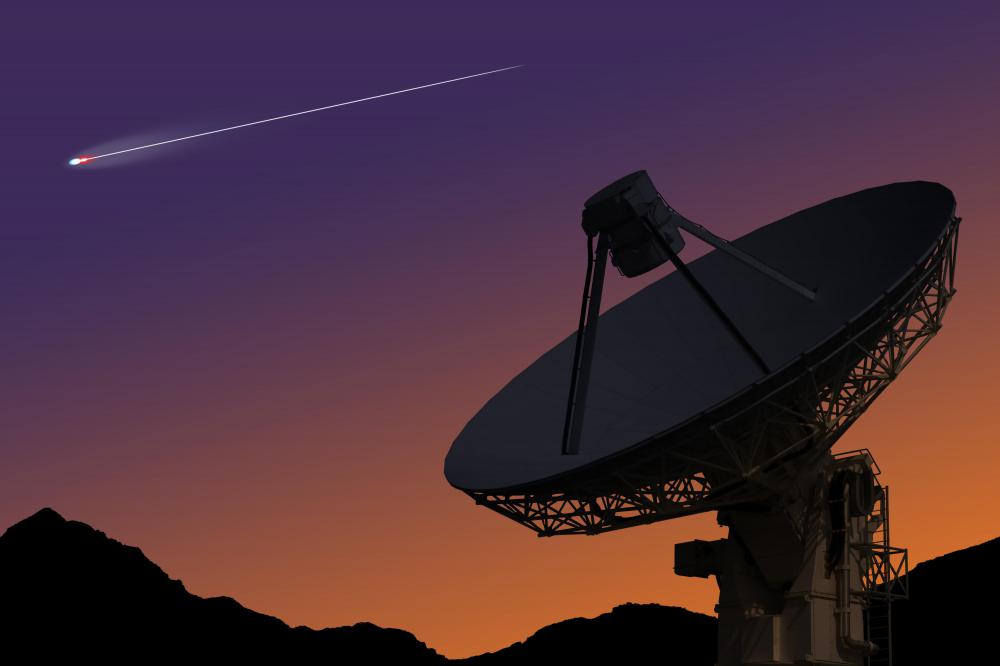At WiseGEEK, we're committed to delivering accurate, trustworthy information. Our expert-authored content is rigorously fact-checked and sourced from credible authorities. Discover how we uphold the highest standards in providing you with reliable knowledge.
How do I Become an Astrophysicist?
Astrophysicists conduct theoretical and applied research to better understand the physical properties of the universe. Scientists study celestial bodies with telescopes and satellites, and compare their observational data with physical models and detailed mathematical formulas. A person who wants to become an astrophysicist should be prepared to complete about eight years of academic coursework to receive a Ph.D. in the specialty. In addition, a new scientist usually participates in a fellowship to gain practical training and prepare for independent work in the field.
An individual who wants to become an astrophysicist should first pursue a bachelor's degree in mathematics, astronomy, or physics from an accredited four-year college. As an undergraduate, a student can take a number of lectures courses that explain important fundamental laws and theories related to physics. Laboratory and planetarium classes may provide an individual the opportunity to gain hands-on experience with the tools and techniques he or she will need to become an astrophysicist.

An undergraduate can gain additional experience by becoming a research assistant at his or her college or a local observatory. Working as an assistant, a student often gets to participate in actual research with esteemed scientists and professors. He or she has the opportunity to learn about data entry and study design and help publish scholarly articles.

Near the end of a bachelor's degree program, an individual can apply to astronomy or astrophysics Ph.D. programs. Competition for admissions into four-year doctoral programs can be very strong, and schools tend to accept students who have the strongest grades, entrance exam scores, letters of recommendation, and research experience. Once accepted into a program, a hopeful astrophysicist usually speaks with department advisers to identify a professor who will act as a mentor and help him or her receive a degree. A student typically spends the second half of a program conducting independent research under the guidance and supervision of a mentoring professor. Most schools require students to submit detailed dissertations based on their research in order to earn their degrees.

Following graduation, an individual can apply for a postdoctoral fellowship program at a university, observatory, or private research institution. A fellowship program can last from two to four years, and allows a new scientist to perfect his or her research skills by working alongside established professionals. By completing a fellowship, a person can officially become an astrophysicist and pursue a career in applied or theoretical work.

The field of astrophysics, much like other sciences, is constantly evolving as new technology and ideas allow researchers to become more and more accurate in their findings. A person who is able to become an astrophysicist can expect to attend seminars and lectures on a regular basis. By staying up-to-date on the latest advancements in the field and remaining passionate about their work, astrophysicists usually enjoy rewarding, lifelong careers.
AS FEATURED ON:
AS FEATURED ON:














Discussion Comments
I wish I would've known about this about 40 years ago but my school wasn't too keen on guidance counseling. I still remember my guidance counselor taking more smoke breaks than counseling. I'm pretty sure he's been long dead because I never saw him outside without sucking on a cigarette.
This site has provided me the crystal clear view of the answer to my question. Thank you.
Post your comments